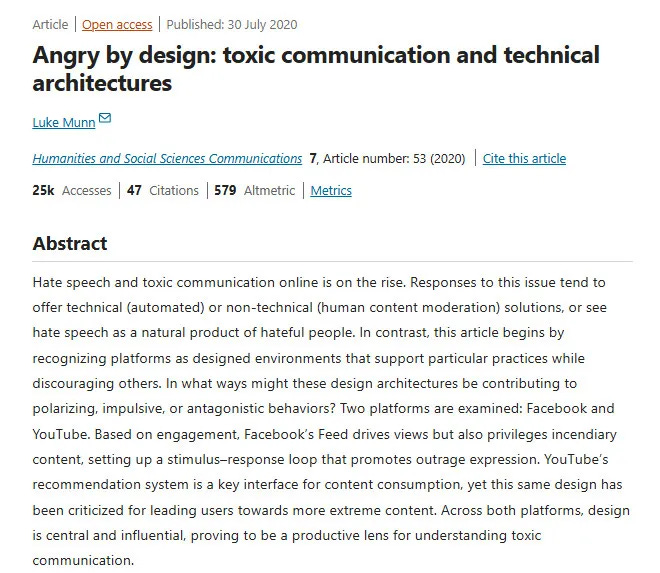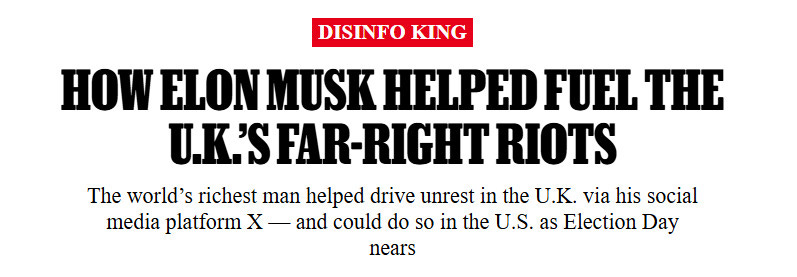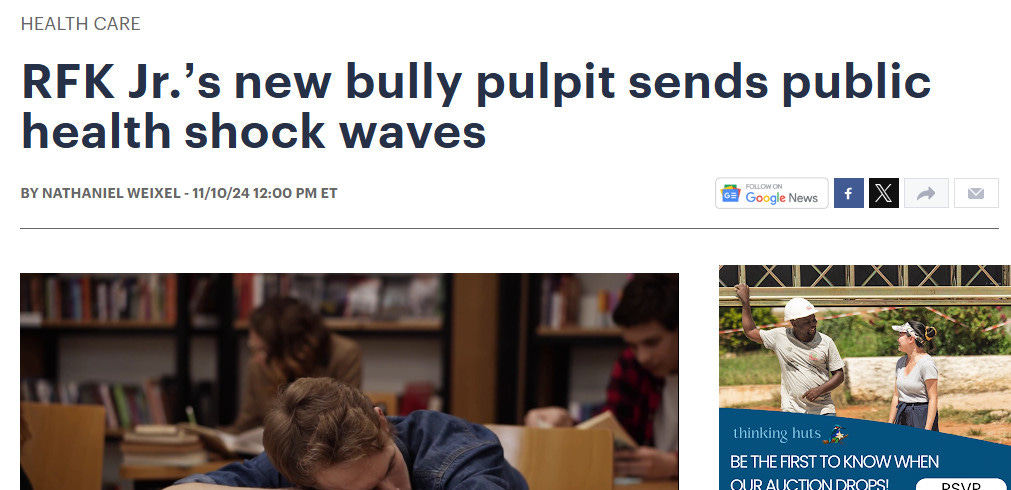The increasing weaponisation of disinformation in politics - a critical threat
The Trump campaign and Elon Musk's pivotal role sets a dangerous example to populists everywhere
This is a post based on an article written by me, Prof Martin McKee and Prof Kent Buse, which was published in the British Medical Journal yesterday. Here I go through some of the main points.
First, the Republican party, the MAGA movement and the US election have been fundamentally reshaped by embracing the big lie that the 2020 US election was stolen by the Democrats. Republicans standing in primaries for nomination to Congress or the Senate were rewarded by voters for subscribing to that lie. This put disinformation at the heart of the Republican party and now the new government.
Disinformation is nothing new and has been part of politics forever. However, the internet and social media have given it wings. It's not just the speed with which it travels - it's the way it deliberately exploits human behaviour and abuses the power and influence of the world’s richest men, to create an information ecosystem that bears little relation to fact.
Humans are drawn to information that provokes anger. Social media companies - making money from engagement - reward such content because it keeps us on their platforms. Bad actors then pump out disinformation knowing the algorithms will help them.

Twitter/X already struggled with disinformation and extremist content before Musk, but it did at least try to limit it (including banning Trump in 2021). Musk reversed this - removing moderation,safeguarding, meaningful verification and adjusting X's algorithms. And disinformation & hate have proliferated.
Musk, owner of X, then went a step further, endorsing Trump, pouring money into his campaign and spreading disinformation about the democrats and the voting process to his 205 million followers. X's algorithm prioritised Republican over Democrat content as soon as Musk’s endorsement landed.
And Musk has real power. For instance, a couple of (non evidence based) Musk tweets about medication significantly impacted sales. Sharing provocative disinformation like Musk did works. Starting from a single anger-inducing disinformation video, radicalisation can happen remarkably quickly. We saw Musk self-radicalise on Twitter over recent years..
This all provides a playbook for populist extremists everywhere - firstly, weaponise social media (ideally with influencers involved) to drive anger in the direction you want it to go. Sow distrust in other media sources, public figures, scientists, experts.
The second part of the playbook is to centre disinformation within government. The Republicans have the lie of the election steal, but - in Trump's picks for the cabinet and his advisors - are also adding climate denial, conspiracy theories, vaccine denial and distrust of proven public health measures.
What this all does together is skew the information available to people in such a way that it undermines democracy - even if choice remains free, it is no longer informed. This is made worse when access to fact checked reporting is now often paywalled, as highlighted in Carole Cadwalladr’s excellent piece the other day (now on substack!).
At the moment social media platforms such as X, Facebook, TikTok - and the world's richest men who own them - are unaccountable and unregulated. This needs to change. Brazil has shown it can work, the EU is trying.
We also need to take disinformation and its weaponisation more seriously - how can we address the human vulnerability to emotive content algorithmically driven at them on the receiver end? We must accelerate reseach into how to inoculate our populations against such tactics. Social media is only twenty years old, the world wide web barely 30 - but we cannot afford to wait passively for humans to adapt to what this means for how we process and evaluate information. Especially as the widespread use of disinformation created by AI, including highly convincing deep fakes, is just around the corner if not already here.
Finally, politicians of ALL parties and public figures must stand up to disinformation wherever they see it and resist the temptation to join in for their benefit (looking at you, Farage and many of the Tory right).
Of course, the US electoral result was about far more than the success of disinformation - not least the impact of inflation and the daily cost of living - but how people put their lived experience into context, what they worry about and are fearful of, is shaped by the information they have access to. This stuff really matters, and none of us are immune to its effects and temptations.










I agree that Musk and disinformation was an important factor in Trump’s victory - I made a similar point in my post on the “red-pilling” of America.
https://open.substack.com/pub/markhonigsbaum/p/what-just-happened?r=rgoak&utm_medium=ios
But on reflection the most important reason for Harris’s defeat was the Democrats’ association with identity politics, which alienated independent voters, and Gaza, which depressed turnout on the Left.
I also think we shouldn’t underestimate the role of the pandemic in undermining incumbents everywhere. That’s why Trump lost by the narrowest of margins in 2020; and Harris could not escape Biden’s legacy of high inflation fuelled by the pandemic and the energy crisis
Public Health Practitioners and others must call out misinformation when they see it.
But most of them are employed in the public sector - in the UK, in: UKHSA (where they have been made into civil servants, where they used to be NHS staff and thus not as directly controlled by politicians); local government (ditto); or state-funded universities. I don't know how they will be able to speak the truth. They have already parrotted government misinformation (eg Covid-19 was not spread by airborne routes).